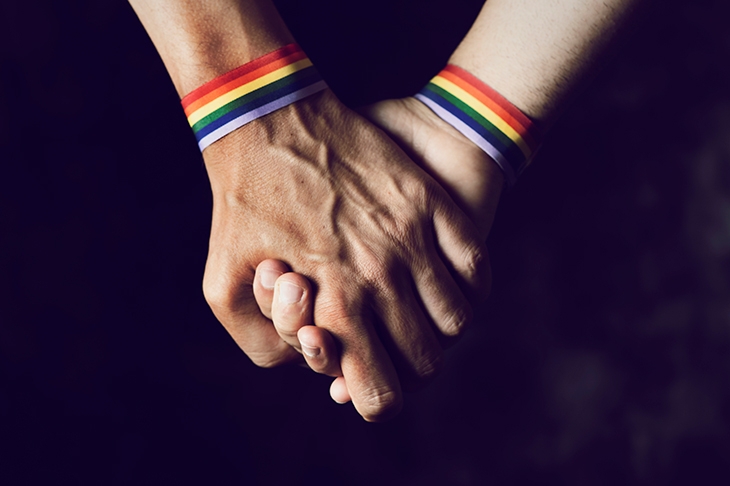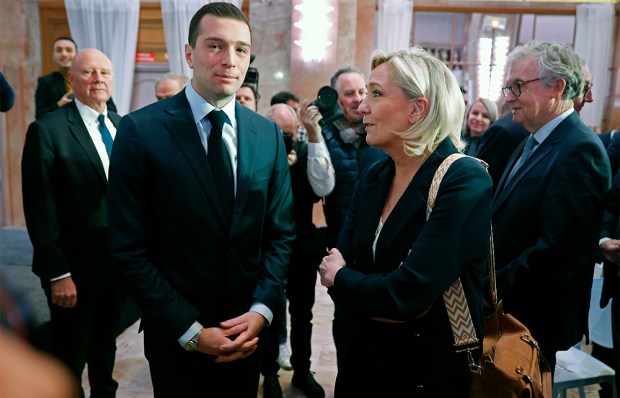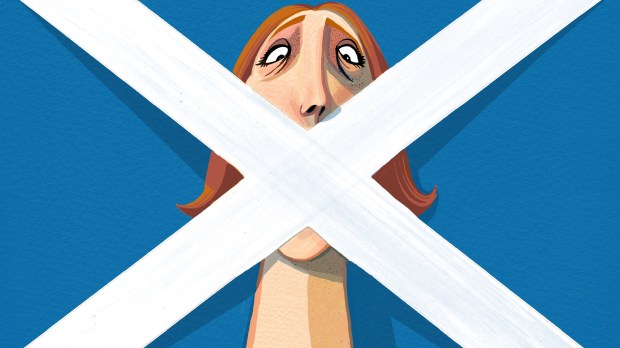Earlier this month, with the citizenry still confined to their houses, borrowing at record highs and GDP in a record slump, there was a debate in Westminster Hall about ‘conversion therapy’. An internet petition has called on the government to ‘Make LGBT conversion therapy illegal in the UK’. And so for a couple of hours MPs from across the major parties competed with each other to express their horror at gay and trans people being subjected to this practice.
Feelings ran high. Nobody spoke against. One Conservative MP arguing for criminalisation, Alicia Kearns, claimed that she had come into parliament with ‘one legislative change I wanted to deliver, which was to ban conversion therapy’. How well-represented the voters of Rutland and Melton must feel themselves to be. Now that the gay rights cause is effectively won, all the speakers spoke with that unmistakable certainty which comes from believing the moral wind is behind you.
The MP kicking off the debate paid tribute to an evangelical Anglican woman called Jayne Ozanne, who since coming out six years ago has made it her mission to outlaw ‘conversion therapy’ in the UK. In what is clearly a concerted campaign to put pressure on the government, two days after the Westminster Hall debate Ozanne and two others resigned from its unwisely created ‘LGBT advisory panel’. She preposterously asserted that the present government has created a ‘hostile environment’ for LGBT people. From her new position as self-appointed spokesperson of Big Gay, Ozanne also declared that the government ministers in charge of equality are ‘ignorant’ of issues affecting the ‘LGBT community’. And with the zeal of the newly converted, she claimed that ‘among the community’ (on whose behalf she apparently now speaks), the ministers are known as ‘the ministers of inequality’. As though any self-respecting gay would make a joke that lame.
As in so much of the Westminster debate, no evidence was required for this claim. All that was demanded was unanimity and a faintly familiar moral opprobrium. Yet it is precisely at such moments that dissenting voices are needed. If legislation came into force based on the current arguments, it would backfire because it has been thought through so poorly.
Proponents of a ban present this country as though we are seething with fire-breathing zealots, eager to pray the gay away. In fact all the established churches and every medical and psychological authority are already united in condemning such practices. While MPs were talking of electric shock therapies and more, they seemed to be forgetting that it is already illegal to physically harm people in the UK. As it is to exercise coercive control. If any of this was tried on children and discovered, then it should already lead to the punishment of the perpetrators. Where things like ‘conversion therapies’ have been discovered — and they occasionally are, generally among the country’s more ‘diverse’ congregations — then it is not clear how a new piece of legislation would stop them. The possibility that a specific law could be some additional deterrent against law-breaking is the only viable argument that the crusading MPs and activists have on their side.
Still, arguments against — arguments, as I say, raised by not one MP in the debate — should be aired. For at stake is not just an issue of the protection of children, but one to do with the freedom of adults. As I have written before, there is no reason to believe that sexuality is a one-way street which always tilts towards gay. At times in the past an opposite belief held. But today, even as a younger generation are exploring sexual ‘fluidity’, older activists keep assuming that while being gay (and trans) is a totally fixed identity which must always and only be affirmed, there is no flow the other way. But what if there is? Should volunteering, consenting adults not be able to have conversations about this in private?
Even with adults, ‘affirming’ is not always the best course. Let us say (and the Conservative party has knowledge of this) that a man in late middle age, married and with children, thinks he might be gay. Should he be able to hear from anyone other than those who say ‘You’re a queen, for sure’? Why should the law mandate that everyone ‘confirm’ the person’s identity, and urge him to leave his wife and children? And why should the opposite be made illegal?
The issue gets far harder in the complex territory of trans — territory which the MPs all dismissed, as though the logic of irreversible, body-altering decisions is obvious. The recent legal case of Keira Bell against the Tavistock Clinic was won precisely on the grounds that people in a position of responsibility should have done more than simply ‘affirm’ the identity Bell then felt she had. As the court heard, any questioning of the young woman would have been a very good thing, stopping the prescription of puberty blockers and more. This is not a hypothetical. Advocates of a ‘ban’ are insistent that it must extend to what they call (with an air of extraordinary certainty) ‘trans children’. Making it illegal not to affirm the claims of ‘trans children’ will create a parental and pedagogic nightmare.
If there are pastors and imams out there doing things that are already illegal, they should be caught. Historically, far too many gay people have been damaged by attempts to make them straight. But banning such practices and having societal disapproval of them is enough. The justifications for a new law are not as obvious as its advocates pretend and will have consequences they have not thought through.
Yet it feels to me, at any rate, as though something else is going on here. As though the debate is actually one of those that Conservatives too easily get caught up in — all about proving your credentials and being on the ‘good’ side. If the government fails to act, doubtless a small but vocal group will continue to try to pretend that’s because the government is anti-LGBT. But the government can bat them away. It may say that the current laws work fine. It may say that their critics haven’t presented a persuasive enough argument yet. Or it may just say that while the nation faces some very real perils, a phantom in retreat cannot be among their legislative priorities.
Got something to add? Join the discussion and comment below.
Get 10 issues for just $10
Subscribe to The Spectator Australia today for the next 10 magazine issues, plus full online access, for just $10.
You might disagree with half of it, but you’ll enjoy reading all of it. Try your first month for free, then just $2 a week for the remainder of your first year.















Comments
Don't miss out
Join the conversation with other Spectator Australia readers. Subscribe to leave a comment.
SUBSCRIBEAlready a subscriber? Log in